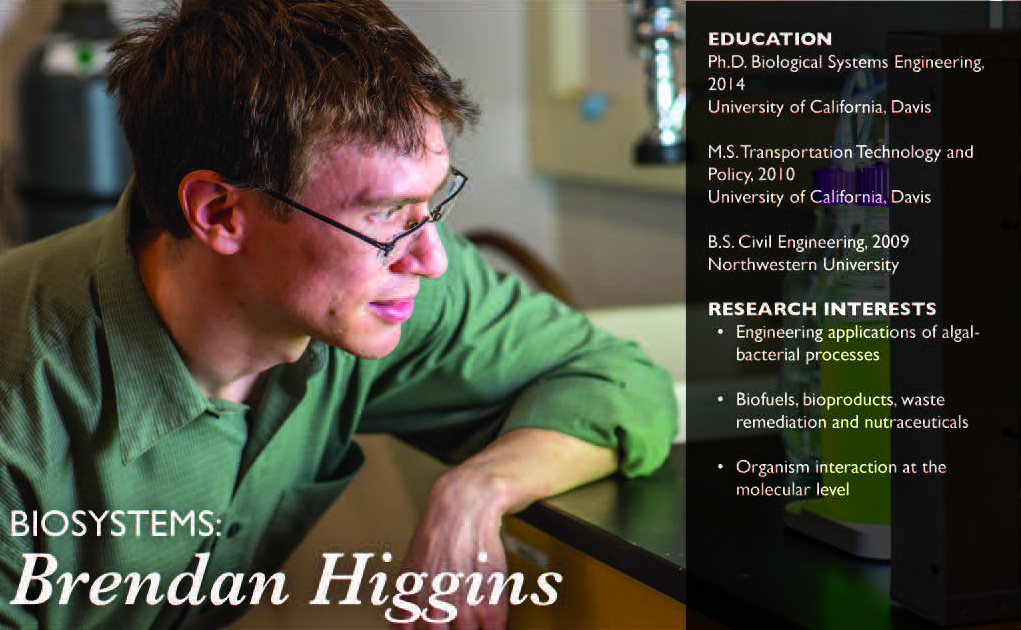Have you ever looked at algae growing in a pond and wondered if it can fuel your car?
Probably not. But this is a serious question for Brendan Higgins, assistant professor of biosystems engineering.
Higgins is part of Auburn University’s team of researchers studying scalable energy conversion science and technology.
He joined the university in 2016 after completing his doctorate and a postdoctoral research position in biological systems engineering at the University of California, Davis. His work there focused on algal-bacterial systems, microbial community and bio-encapsulation.
His research focuses broadly on biofuels production, but more specifically he is interested in how processes involving algae and bacteria can be used for remediating waste, producing biofuels and synthesizing high-value products.
From a cost perspective, algal biofuels simply can’t compete with oil and natural gas in today’s energy market.
However, Higgins and his colleagues at the Forest Products Laboratory are trying to find other sources of value that can help make this source of bioenergy more cost effective.
For instance, can these algal processes do something else positive, such as cleaning water, while also producing energy?
Higgins is hoping the answer to that question is “yes,” which could drastically alter what types of energy are available in the future.
“In terms of energy production, what we’re doing commercially doesn’t make any sense in the long run,” Higgins said.
“My fellow researchers and I are trying to aggressively develop technology that can move some of these ideas about algal biofuels out of the lab into commercial space,” he added.
